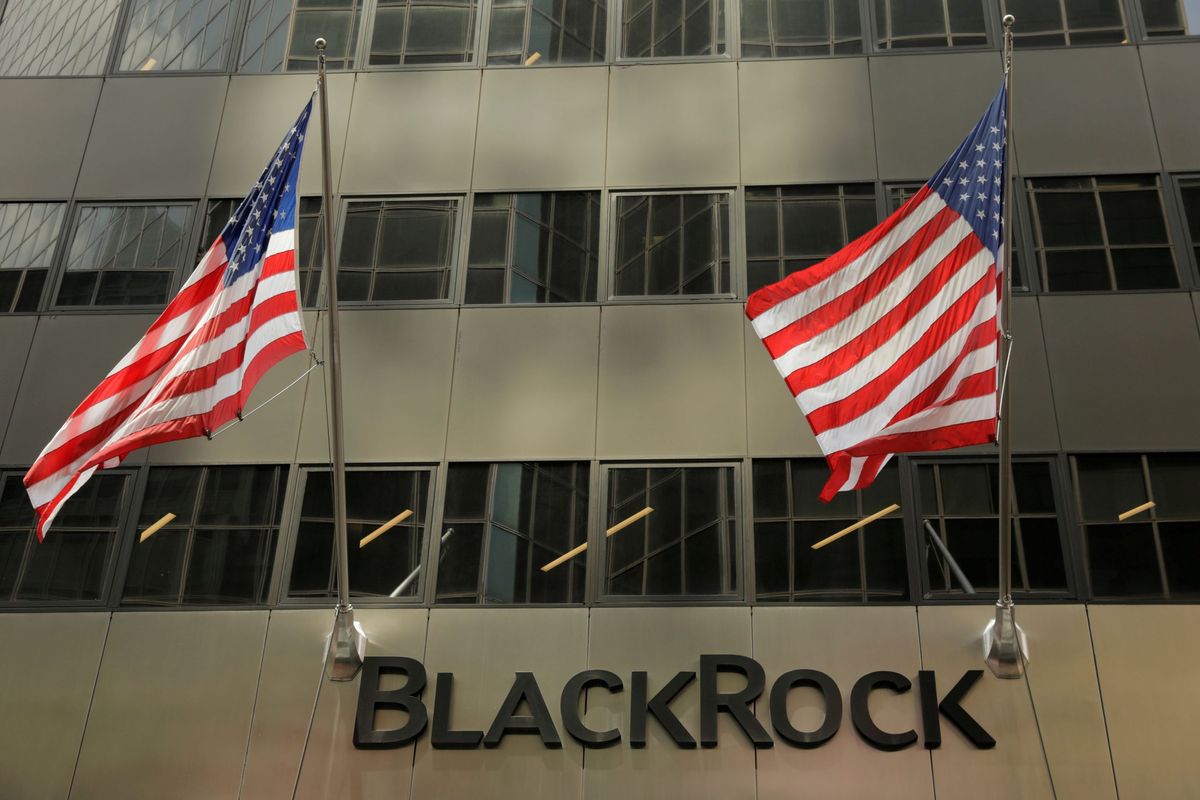BlackRock and the impact the global climate crisis will have on investments, explained

A few minutes every morning is all you need.
Stay up to date on the world's Headlines and Human Stories. It's fun, it's factual, it's fluff-free.
BlackRock, the world’s largest fund manager, released its annual letter in which the company reminded business executives that ignoring climate change will have a negative impact on economic growth.
Many investment firms, such as Warren Buffett’s Berkshire Hathaway, have already released their annual shareholder letter in which they discuss their victories and losses for the past year and their goals for the year ahead.
BlackRock, Inc., the world’s largest fund manager, released its annual letter in which the company reminded business executives that ignoring climate change will have a negative impact on economic growth. Through the BlackRock Investment Institute (BII), the company updated its Capital Market Assumptions (CMAs), which it uses to build its portfolios. BlackRock oversees an estimated US$8.67 trillion across markets.
2021 letter to CEOs
Larry Fink, the chief executive officer of BlackRock, wrote that 2020 served as a reminder that the world needed to take climate change more seriously.
“I believe that the pandemic has presented such an existential crisis – such a stark reminder of our fragility – that it has driven us to confront the global threat of climate change more forcefully and to consider how, like the pandemic, it will alter our lives.”
This isn’t the first time that Fink has written a letter urging others to take a tougher position on climate change.
2020 letter to CEOs
At the end of 2019, members of BlackRock’s global executive committee wrote a letter to the company’s clients in which they stated that 2020 was a year of new beginnings for the company.
In the letter, the committee announced a number of initiatives it was taking to place sustainability at the center of the company’s ongoing investment approach, including making sustainability integral to portfolio construction and risk management.
The company also committed to dumping investments that presented a high sustainability-related risk, such as thermal coal producers, while also launching new investment products that screen fossil fuels.
In this same letter, Fink expressed his commitment by telling CEOs that BlackRock would “vote against management and board directors when companies are not making sufficient progress on sustainability-related disclosures and the business practices and plans underlying them.”
Future investment opportunities
As the company transitions into the second quarter of 2021, its position regarding the global climate crisis has not changed. The company recently reported that failing to transition from carbon-based emissions to clean energy could lead to a loss in global output of 25% over the next two decades.
“Climate risk is investment risk, yet there are also significant investment opportunities in the transition to a net-zero [emissions] economy,” said Jean Boivin, head of the BlackRock Investment Institute. “By quantifying those opportunities we can build portfolios that benefit from exposure to the transition, which is an integral part of our fiduciary duty to clients."
BlackRock offered insight into the potential risks that a company could face by ignoring climate change and suggested that companies and investors risked miscalculating the threats facing the companies they hold, such as rising sea levels or extreme weather, if they didn’t factor in climate change.
BlackRock further stated that companies would risk missing out on growth opportunities if they didn’t take climate-change mitigation seriously and that companies needed to account for a shift to lower carbon output as well as expected increased regulations and greater spending on infrastructure.
The future of BlackRock
While the investment risk serves as a clear motivator in and of itself, Fink’s letter demonstrates a genuine concern for the future of the global climate. BlackRock states that it is implementing rigorous goals for its companies and that it expects companies to adhere to these goals or risk losing BlackRock’s support.
BlackRock said that it is prepared to “vote against the directors … responsible for climate risk oversight” because the company views this as the “appropriate escalation where [it] see[s] a lack of urgency and progress in a company’s actions around climate risk.”
For BlackRock, this is more than a financial investment opportunity, but an opportunity for the company to use its resources and influence to make a positive difference in the global climate crisis. Fink and his company are constantly updating their website with news and research regarding the institution’s findings regarding the relationship between future investments and climate change.
Along with BlackRock’s commitments, the recent release of The Dasgupta Review indicates that climate change has a deep economical impact that must be considered. With BlackRock being the largest fund manager in the world, the potential effects of their global initiative to stop climate change will be worth following in coming years.
Have a tip or story? Get in touch with our reporters at tips@themilsource.com




Comments ()